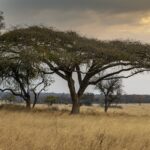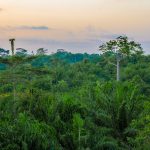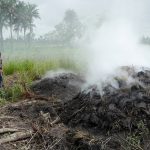
Zimbabwe is considering a debt-for-nature swap to address its $21 billion arrears, aiming to exchange debt relief for commitments to environmental conservation.
Kleptocrats on the continent are profiting from the illicit forestry trade, which is estimated by Interpol and the United Nations Environment Programme to be worth $51 billion to $152 billion annually. Short summaries of the issue provided for DRC, Mozambique, Zambia, Equatorial Guinea, Namibia, Zimbabwe, Gabon, Tanzania, Kenya.
Zimbabwe’s electricity deficit has been linked to widespread deforestation as illegal loggers are increasingly cutting down trees to produce charcoal, which is sold in major cities such as Bulawayo and Harare.
Zimbabwe, the largest producer of tobacco in Africa and sixth globally, is looking to turn tobacco farming into a $5bn industry by 2025. It is one of the biggest foreign currency earners for the Southern African nation, along with gold and remittances.
Last year alone, tobacco earned $1.2bn, but statistics show that tobacco farmers are responsible for ravaging 60,000 hectares of forests each year, around 20% of the country’s total forest loss of 262,000 hectares per annum. Can a sustainable solution be found before the industry reaches its new goal?
Zimbabwe, Africa’s biggest tobacco grower and one of the world’s top exporters of the nicotine leaf opened its selling season for the crop amid pledges to fight deforestation and child labor in response to pressure from rights groups, environmentalists and international buyers.
Click here to access the Global Illegal Logging and Associated Trade (ILAT) Risk assessment tool and to download the Forest Trends User Guide describing the functionality of the ILAT Risk Data Tool.
Click here to access the Cattle Data Tool.




